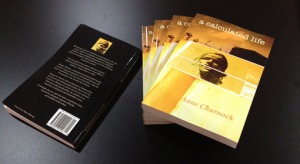Arthur C Clarke Award #5: The Dog Stars by Peter Heller
A global flu pandemic has decimated the human population and, if that’s not bad enough, the worst effects of global warming are taking their toll. The Dog Stars is set in Colorado nine years after the flu pandemic. Hig, a pilot, has made a life for himself at a remote airfield and he’s coping with his emotional trauma – ‘being at the end of all loss’ – thanks to the companionship of his dog Jasper.
This is the fifth novel I’ve read on the Arthur C Clarke Award 2013 shortlist. The winner will be announced on Wednesday 1st May. Read more




